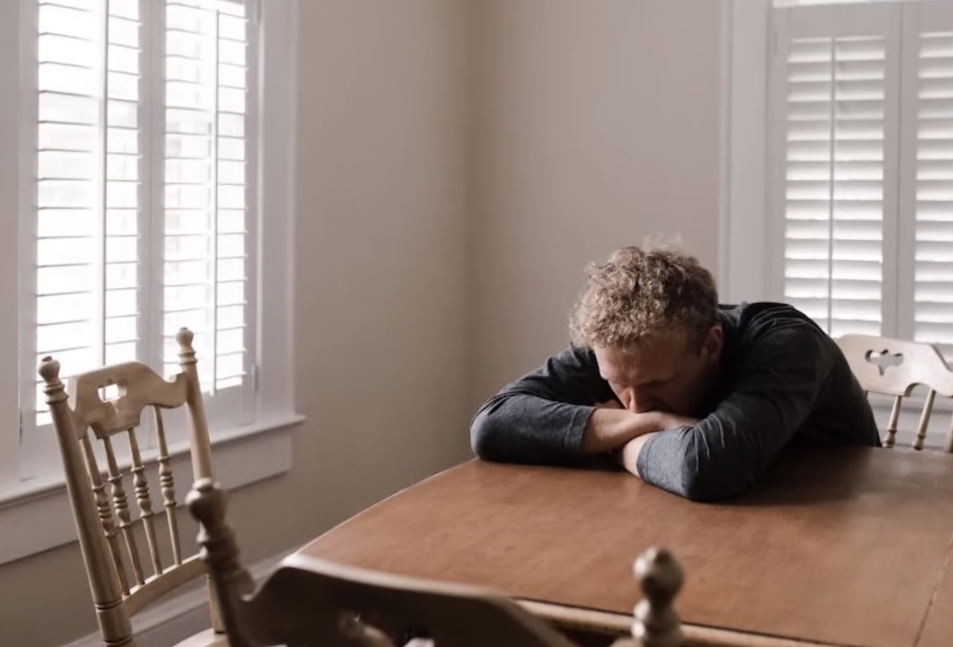1. Small benefits

Many people, the less money they have, the more they become stingy in their way of living. Therefore, unable to control themselves, they want to take advantage of others to gain a small benefit that can provide them with a meal right away, even if it means giving up their dignity to save a few tens of thousands of money for a meal. As time goes by, the impression they leave on others is that of a greedy and petty person who only likes to take advantage of friends and relatives. Once people lose all trust in them, no one will be willing to work with them anymore, and they will never meet a benefactor to help them change their lives. They will only live getting poorer and poorer, just like the story below. In a herd of sheep, there are two sheep who do not know why they are fiercely fighting each other. Both use their horns to risk their lives by ramming each other, leaving a lot of blood on the ground.
A wolf passing by sees this and is delighted, thinking that if these two sheep continue to fight like this, it can eat the sheep right away. So it runs between the two sheep, licking the blood on the ground happily, thinking that before licking the blood, there will be meat to eat, which is so happy. But unexpectedly, at this moment, the two sheep suddenly ram into each other strongly, and the wolf, not paying attention to this, is unable to escape and is pierced in the stomach by both horns and dies. Just for a small immediate benefit, they risked their lives and paid the price. There are few or many people like this in the world.
2. The concept of "conspicuous" consumption

In modern society, consumer culture is present everywhere, tempting us in many different forms, from blatant advertisements to constantly updated products. All these factors stimulate our desire to buy. In this culture, people often overlook their real needs and blindly pursue short-term satisfaction. They are willing to spend money on buying the latest electronic gadgets, fashionable items, or various entertainment services, but rarely consider whether these purchases truly improve the quality of their lives.
Furthermore, the prevalence of social media has increased this trend of conspicuous consumption. On social platforms, people see the wonderful lives of others and feel envious. They then imitate their spending habits in hopes of improving their own image and social status through consumption. This imitative comparison mentality has led many people into a trap of comparison, where for the sake of vanity and short-term satisfaction, they are willing to overspend, even falling into a pile of debts.
However, conspicuous consumption only brings temporary happiness and cannot provide long-term satisfaction. True satisfaction comes from a deep understanding of life and actively planning for the future. Smart consumers pay more attention to the quality of consumption rather than quantity. They think carefully before making a purchase to ensure that every expense truly brings about an improvement in their lives. By abandoning conspicuous consumption beliefs and adopting rational spending plans, in the long run, we can escape financial difficulties and move towards a more prosperous and fulfilling life.
An American economist proposed the concept of conspicuous consumption as follows: he believes that many people spend instinctively regardless of their circumstances to satisfy their desire to maintain appearances, gain recognition from others, and enhance their self-image. However, this extravagant consumption style will eventually turn into a black hole that swallows money, making you poorer day by day. There is a cousin who works in a factory. Although his salary is not high, he is very generous. Every time he receives his salary, he invites friends to a lavish meal and then goes singing all night. Moreover, the clothes he wears are all from famous brands, and he often changes his phone whenever a new model comes out.
It would be nothing worth mentioning if all the valuable items he owns were purchased on installment. In the end, he owed more than 329.5 million dong. The lesson learned is that while appearances can be elevated, money is limited and will slip away if you gamble your life for a little prestige. When you use your meager amount of money to chase after extravagant things, you will deplete your energy, always feel insecure about yourself, breed a sense of comparison, and over time, your money will be drained, leaving you trapped in poverty and unable to turn the situation around.
3. Continuous debt cycle

The concept of a continuous debt cycle describes the living conditions of people who frequently fall into debt, often borrowing money due to short-term financial pressure or simply to spend. However, over time, these debts grow larger and larger, and the root of the problem is that these people often do not have a clear debt repayment plan or lack effective financial management skills, leading them to fall from one debt trap to another. In reality, this debt cycle manifests in various forms, for example, some people may use credit cards beyond their repayment capacity due to extravagant spending and then can only make the minimum monthly payment, accumulating more interest.
Others may choose high-interest loans because they urgently need capital, but the high interest rates make their financial difficulties even deeper. Together, these different forms of debt form a complex and dangerous economic network. The continuous debt spiral is not only a financial issue but deeply affects the mental health and social relationships of individuals. Under the weight of debt, people may lose their enthusiasm and hope for life and fall into a negative state of living. Breaking this debt cycle requires strong willpower and smart decision-making.
People need to carefully assess their financial situation and develop a realistic debt repayment plan. This may include cutting unnecessary expenses, increasing sources of income, or restructuring debts. Additionally, developing good financial management habits is important, including creating a wise budget, avoiding unnecessary spending, saving, and actively investing. Improving professional skills and knowledge can also enhance a person's competitiveness in the market, leading to stability and increased income.
4. Standing on this mountain, looking at that mountain
There have been too many people who use reasons such as not having opportunities, facing too many difficulties, or lacking hope to justify their own failures. What does that do? It makes it easy for them to give up on their current job and choose another job that seems more promising and easier to succeed in. Then the cycle continues, giving up and starting over, but if you are not doing well in your current job, what good does it do to seek a higher ladder that you are not strong enough to climb? If you are not performing well all day and are already thinking about jumping from one job to another, it will only make you a person who stands on this mountain looking at that mountain. People like that do not know the reality of their situation, their abilities are not enough, but their vision looks far ahead. In the end, they will surely lose their perseverance, making themselves worse off as they live.
A has a shoe store opposite B's hair salon. Every day, A sits idle, listening to the radio and watching people passing by, and only occasionally does someone come in to buy shoes. Sometimes, all day, no pair is sold, customers just come to try on and then bargain, complaining about the high prices and leaving, making A discouraged. Looking at B's hair salon, where people come and go in a hurry, with customers waiting in line to get their hair cut, A cannot help but sigh with envy. A mutters to himself, "B is so lucky to have chosen a profession that makes money so easily, just holding a pair of scissors and making a few cuts, not even 10 minutes, and he earns money. Cutting hair for so many people all day, they just sit there, customers come on their own without having to invite them, relaxed and making a lot of money. In my shoe selling business, I have to greet customers all day, my mouth is tired from talking, and customers still leave without buying anything all day, it's frustrating and I can't sell a single pair, if I had the chance, I wouldn't choose to be a shoe seller."

By midday, customers are still scarce, B sits down due to back pain and looks over at A. B sighs, "standing all day, my legs and back ache, spinning like a top with customers, and I haven't even had lunch yet. My job is so hard to make money." Looking at the shoe seller, B envies, all day sitting comfortably, just selling a pair of shoes is enough to cover expenses for the whole day. In the evening, when they pack up to go home, A and B meet, both sighing about their own work and expressing admiration for the other's profession. After a while of talking, they agree that starting from tomorrow, they will switch positions. A will cut hair, and B will sell shoes. The next day, both eagerly start the work they have dreamed of doing.
A cuts hair for customers, but no matter how much he cuts, the customers are not satisfied. In the end, the customer gets angry, grabs the scissors from A's hand, and chases A around the street. B, on the other hand, enjoys sitting comfortably, listening to music all day and snacking without any customers buying anything. But when he stands up and looks at B's counter, he is shocked and scared to see that over a dozen pairs of shoes have disappeared without a trace. A and B look at each other in dismay at their failure. Indeed, everyone faces the difficulties and hardships of their own, and to reap the rewards in the chosen profession, the only way is to focus and strive to do well, without looking around or comparing with any other job. Standing on this mountain looking at that mountain will never bring you a good result but only lead to bad consequences.
5. Blaming others for not helping oneself

Some people, the less money they have, the more miserable they live, feeling increasingly dissatisfied when they see people around them prospering and becoming wealthy. Why do those who live well not help me a little bit? This anger makes them lose their reason and feel jealous, turning them into petty individuals. They forget a fact that people only help out of respect. If someone does not help, it is a common thing in life because they are not obligated to help you. Getting angry and resentful over this will only make us lose good friends. Therefore, even if you have no money, you must become a poor person but live positively with dignity and self-respect.
